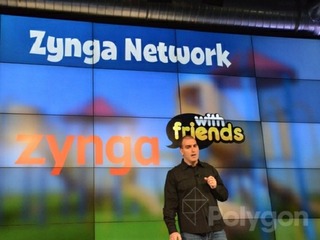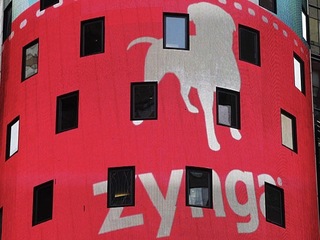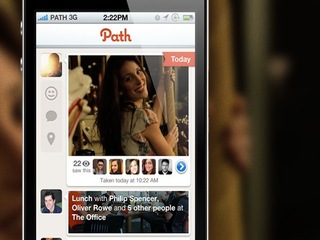Studying History: How Westward Expansion Still Inspires Small Businesses
How the Legacy of Westward Expansion Continues to Inspire Small Business Owners
Read more...
Even when every company is rushing to create and improve their mobile presence, two well-known CEOs made it clear that the road to mobile is a bumpy one -- no matter how established the business is.
Zynga's CEO and founder Mark Pincus and Path’s CEO and founder Dave Morin both spoke at the Venture Beat conference held in San Francisco on Tuesday and spotlighted their experiences in navigating and building their mobile environments.
Pincus pointed out that one of the largest missteps that Zynga made in mobile gaming was jumping in so soon, when it launched its poker game on iOS before it could step up the rules it wanted to play by. "“We quickly found out we were way too early to the market,” Pincus told the GamesBeat audience.
When Zynga jumped into the mobile world with Zynga Poker, the iOS platform was not large enough to sustain 10 million daily active users which is part of Pincus' 90/10 ratio to run a viable, sustainable platform -- being capable of building and sustaining 10 million daily active users in 90 days.
In order to build a strong usership and revenue model beyond that on Facebook, Zynga has been aggressive in the mobile world, but most of its gains have come by acquiring companies that already resonated on that device platform such as with Words with Friends and Draw Something.
Pincus also pointed out that game discovery needs some more innovation and creativity, since, currently, most people are finding new games from social networking shares and top 10 lists in app stores.
Morin pointed out that Path didn’t have an immediate success with the first version of his privacy-centric mobile app and even admitted that it was about "70% a failure."
Mobile construction requires a lot of time to build the utmost simplicity, Morin explained. "Your first version’s probably going to fail. You probably should just accept that.”
Path took its first failure in stride and committed to a total redesign as well as take the time to see just how people interact with the service to incorporate music, screenshots, and fitness features.
"We went through 20 iterations of our new home feed we see today," Morin said. And, his company saw that smaller changes and releases were riskier but also provided the most response, feedback and results.
Both Pincus and Morin stressed that building a mobile structure or environment takes a lot of time and a lot of failure before developers can create a user experience that reflects the company's hopes as well as the users' lifestyle.
A lot of chatter has been building around building better mobile ecospheres since Facebook announced the launch of its App Center in May.
And then, just weeks after launching the Facebook App Center for U.S. users, the social network giant is extending the service internationally -- adding extensions for Australia, Canada, India, Ireland, New Zealand, South Africa, and the United Kingdom, with Brazil, France, Germany, Russia, Spain, Taiwan, and Turkey.
The news to localize Facebook apps was announced Monday by Facebook App Center executive Drew Hoskins.
As part of this effort to localize the App Center based on language and country of users, Hoskins also announced a translation tool that developers can use to bring their apps to the various versions of the App Center.
The App Center was designed to help Facebook user discover new apps using recommendations, personal interests and Facebook usership preferences (such as browser-based of mobile app).
Since users outside of the U.S. and Canada make up more than 80% of Facebook’s base, attracting more of those users to the various apps will be crucial for the company to keep increasing downloads, page views and time spent on the site as the company inches closer to its first post-IPO quarterly earnings report.
Developers are looking to the more-established mobile and social app developers like Zynga nad Path to see just what they need to create more sucessful apps, without going through every misstep they already took.
How the Legacy of Westward Expansion Continues to Inspire Small Business Owners
Read more...Top three lessons learned: Stay Humble; Don't Quit; Show Up
Read more...Startup/Business
Joined Vator on
Zynga is the largest social gaming company with 8.5 million daily users and 45 million monthly users. Zynga’s games are available on Facebook, MySpace, Bebo, Hi5, Friendster, Yahoo! and the iPhone, and include Texas Hold’Em Poker, Mafia Wars, YoVille, Vampires, Street Racing, Scramble and Word Twist. The company is funded by Kleiner Perkins Caufield & Byers, IVP, Union Square Ventures, Foundry Group, Avalon Ventures, Pilot Group, Reid Hoffman and Peter Thiel. Zynga is headquartered at the Chip Factory in San Francisco. For more information, please visit www.zynga.com.

Joined Vator on






